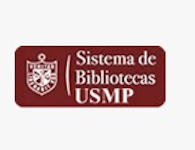Childhood abuse, intimate partner violence, and placental abruption among Peruvian women

Ver/
Trabajo
(application/pdf: 86.24Kb)
(application/pdf: 86.24Kb)
Fecha
2019-03Autor(es)
Mitro, Susanna D.
Sanchez, Sixto E.
Palomino, Henry
Gelaye, Bizu
Williams, Michelle A.
Metadatos
Mostrar el registro completo del ítemResumen
Purpose
Experiencing childhood abuse (CA) or intimate partner violence (IPV) has been linked to adverse pregnancy outcomes. We examined whether CA history and current IPV are independently and jointly associated with placental abruption (PA).
Methods
We recruited 662 PA cases and 665 controls in Lima, Peru. We used multivariate logistic regression to calculate odds ratios (OR), adjusting for age, education, and parity.
Results
Approximately 42% of cases and controls reported CA; 50% of cases and 49% of controls reported IPV. History of any CA was not associated with PA, but history of severe CA was associated with 38% increased odds of PA (adjusted OR [aOR], 1.38; 95% confidence interval (CI), 1.07–1.80), adjusting for IPV. There was a statistically nonsignificant association between severe IPV and odds of PA (aOR, 1.22; 95% CI, 0.92–1.62), adjusting for CA. Women who experienced severe CA and severe IPV had 2.06-fold (95% CI, 1.25–3.40) increased odds of PA compared with women who did not experience severe abuse. The joint effect of CA and IPV was positive but statistically nonsignificant on the multiplicative (aOR, 1.48; 95% CI, 0.79–2.80) and additive scale (relative excess risk due to interaction, 0.70; 95% CI, −0.39 to 1.78).
Conclusions
Preventing exposure to violence may improve maternal outcomes.
Colecciones
- Artículos [274]
Materias
Editor
Elsevier B.V.
Acceso
info:eu-repo/semantics/openAccess
Recurso(s) relacionado(s)
https://www.ncbi.nlm.nih.gov/pmc/articles/PMC6420388/https://doi.org/10.1016/j.annepidem.2018.12.003







